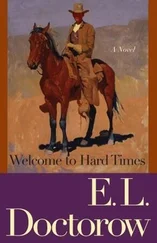endowments of the Western miners’ Black Lung Research Facility,
Denver, Colorado. The Gymnasium of Miss Morris’ School,
Briarcliff Manor NY, the Mexican Silver Workers’ Church of the
Holy St. Clare, Popxacetl Mexico, The Bennett Library on the
grounds of Jordan College, Rhinebeck NY, the Bennett
Engineering Institute, Albany NY, plus numerous ongoing
benefactions of worthy charities and researches plus innumerable
acts of charity to individuals never publicized.
I attribute to F. W. Bennett in his death a last will and
testament of such public generosity as to receive acknowledgment
on the front page of the New York Times data available
upon request.
—
Generally speaking a view of the available economic systems
that have been tested historically must acknowledge the immense
power of capitalism to generate living standards food housing
education the amenities to a degree unprecedented in human
civilization. The benefits of such a system while occasionally
random and unpredictable with periods of undeniable stress
1and misery depression starvation and degradation are
inevitably distributed to a greater and greater percentage
of the population. The periods of economic stability also
ensure a greater degree of popular political freedom
and among the industrial Western democracies today despite
occasional suppression of free speech quashing of dissent
corruption of public officials and despite the tendency of
legislation to serve the interests of the ruling business
oligarchy the poisoning of the air water the chemical adulteration
of food the obscene development of hideous weaponry the
increased costs of simple survival the waste of human resources
the ruin of cities the servitude of backward foreign populations
the standards of life under capitalism by any criterion are
far greater than under state socialism in whatever forms
it is found British Swedish Cuban Soviet or Chinese. Thus
the good that fierce advocacy of personal wealth accomplishes
in the historical run of things outweighs the bad. And while
we may not admire always the personal motives of our business
leaders we can appreciate the inevitable percolation of the
good life as it comes down through our native American soil.
You cannot observe the bounteous beauty of our country nor take
pleasure in its most ordinary institutions in peace and safety
without acknowledging the extraordinary achievement of
American civilization. There are no Japanese bandits lying
in wait on the Tokaidoways after all. Drive down the
turnpike past the pretty painted pipes of the oil refineries
and no one will hurt you.
—
No claim for the perfection of F. W. Bennett, only that like
all men he was of his generation and reflected his times in
his person. We know that by the nineteen-fifties at an advanced
age he had come finally to see unions as partners in
enterprise and to cooperate fully on a first-name basis with
major labor leaders playing golf of course at that age he
only drove a ball twenty or thirty yards but they called him
Mr. Frank and with humor admired his sportif outfits the
beige-yellow slacks the brown-and-white shoes with the tassels
the Hawaiian shirt with his breasts showing. Note is made here
too that this man had a boyhood, after all, woke
in the astonishment of a bedsheet of sap suffered acne
had feelings which frightened him and he tried to suppress
was cruelly motivated by unthinking adults perhaps rebuffed
or humiliated by a teacher these experiences are not the
sole prerogative of the poor poverty is not a moral
endowment and a man who has the strength to help himself
can help others. I cite too the ordinary fears of
mortality the inspection of a fast-growing mole on the side
of the nose blood in the stool a painful injury or the
mournful witness of the slow death of a parent all this is
given to all men as well as the starting awake in the
nether hours of the night from such glutinous nightmare
that one’s self name relationships nationality place in life
all data of specificity wipe out amnesiatically asiatically you
don’t even know the idea human it is such a low hour of the
night and he shares that with all of us. I therefore declare
F. W. Bennett to embody the fullness of the perplexity of
living, as they say.
I cite here his voice which people who knew him only in his
later years believed to be ridden and cracked with his age
but in fact his voice had always been rather high reedy
with a gravelly consistency around its edges and some people
found this menacing but others thought it avuncular
especially after his operation for cataracts when they wear
those goggle glasses. But it was one of those voices of such
individual character that people who never heard it can
imagine it just by the mention of his name and those standing
in the great crush of honors at his funeral could believe
themselves likely to hear it for many years afterward as if a
man of this strong presence could not release his hold on
life except very very slowly and, buried or not, manifest
a half life, probably, of twenty-five thousand years.
I was on headlights. First I attached with four screws two metal frames the screws lay in a bin the frames met at the convergence of two small belts the left frame from the left belt the right down the line. Sometimes the pieces didn’t match, sometimes the wrong piece came down the wrong side and sometimes, the thread not being true, I had to hammer the screws in, everybody did.
Next I affixed the crossed pieces to the inside of a curl of tin shaped like a flowerpot. I then inserted through a hole in the pot about four feet of insulated wire that came to hand dangling from a big spool overhead. I snipped the wire with a pair of shears, knotted the wire so it wouldn’t slip and put the whole thing back on the line for the next man, who did the electrical connections, slapped on the chrome and sent it on to the main line for mounting on a fender.
That was the operation it’s what I did.
High above my head the windows of the great shed hung open like bins and the sun came through the meshed glass already broken down, each element of light attached to its own atom of dust and there was no light except on the dust and between was black space, like the night around stars. Mr. Autobody Bennett was a big man who could do that to light, make the universe punch in like the rest of us.
And all around me the noise of running machines, conveyor belts, the creaking of pulleys, screeching of worked metal, shouts, the great gongs of autobodies on the line, the blast of acetylene riveting, the rattling of moving treads, the cries of mistakes and mysterious intentions.
And then continuously multiplied the same sounds repeated compounded by echoes. An interesting philosophical problem: I didn’t know at any moment what I heard was what was happening or what had already happened.
It was enough to make me think of my father. The man was a fucking hero.
Then they speed things up and I’m going too slow I drop one of the tin pots on the wrong side of the belt the guy there is throwing tires on wheel rims and giving the tubes a pump or two of air he ignores my shouts he can’t take the time. And then the foreman is coming down the line to pay me a call I can’t hear him but I don’t have to — a red bulging neck of rage.
And then they stop coddling us and throw the throttle to full and this is how I handle it: I am Fred Astaire in top hat and tails tossing up the screws into the holes, bouncing the frames on the floor and catching them in my top hat of tin. I twirl the headlight kick it on the belt with a backward flip of my heel. I never stop moving and when the belt is too slow for me I jump up and stomp it along faster, my arms outstretched. Soon everyone in the plant has picked up on my routine — everyone is dancing! The foreman comes pirouetting along, putting stars next to each name on his clipboard. And descending from the steel rafter by insulated wire to dance backward on the moving parade of car bodies, Mr. Bennett himself in white tie and tails. He’s singing with a smile, he’s flinging money from his hands like Stardust.
Читать дальше











